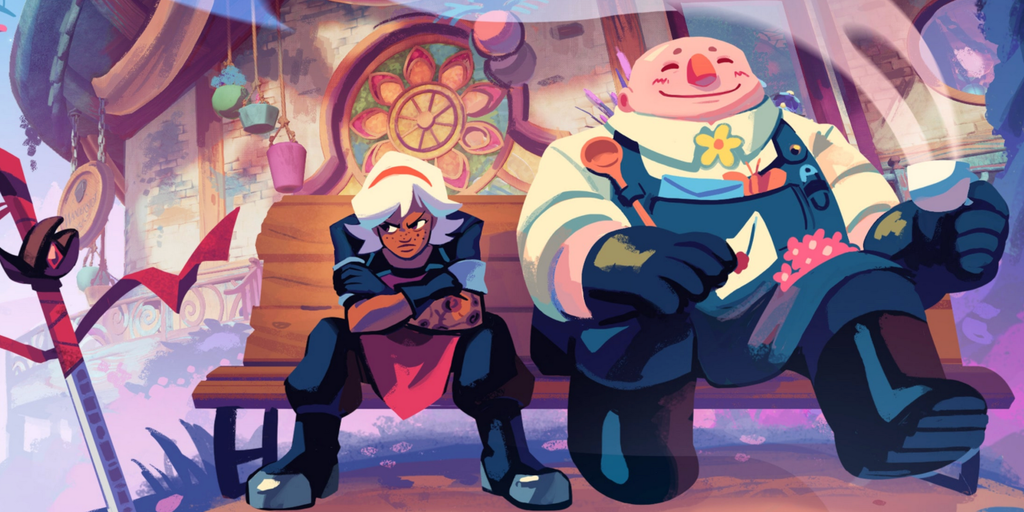A World of Difference: Indie Games Soaring in 2025
Indie developers continue to demonstrate remarkable creativity despite industry giants spending hundreds of millions on major releases. While blockbuster titles offer grand scale, small teams are crafting unique experiences that captivate audiences and punch way above their weight.
What Defines a “Good” Game in 2025
Spending $300 million can certainly fund a game aiming for mass-market appeal, such as Assassin’s Creed Shadows or upcoming titles like Grand Theft Auto 6. However, the enormous budget does not guarantee artistic merit or player satisfaction. Instead, the year-to-date lineup showcases an impressive diversity of high-quality gaming experiences coming from both large studios and scrappy indie teams.
Majestic Mainstream Releases of 2025
This year’s initial months already boast a strong selection of mainstay titles. Kingdom Come: Deliverance II, Assassin’s Creed Shadows, Monster Hunter Wilds, Avowed, and Doom: The Dark Age collectively represent some of the highest-caliber releases of the early part of 2025.
Yet, amidst these established titles, indies have proven equally adept at grabbing headlines and attention. It represents a fascinating shift where the most celebrated new experiences often fall outside the conventional AAA framework.
Small Teams, Big Impact: This Year’s Must-Play Indie Gems
A thumbnail overview would position these games among the very best that independent developers have delivered so far.
Blue Prince
Critics recently awarded Blue Prince widespread acclaim, achieving a near-perfect Metacritic score of 92. Developed by a single individual over eight years, this masterpiece exemplifies what can be accomplished from a single vision and mindset, often lacking the massive budgets but undeniably earning its place among critical darlings.
Players delve into the seemingly straightforward task of uncovering secrets within a house, but the title quickly establishes multi-layered mystery through intricate environmental puzzles. Fans familiar with revered predecessors like Myst and Fez eagerly embraced its structural complexity and arresting beauty, creating near-universal conversation points within the gaming community.
The title’s dominance, however, has also drawn polarized reactions. While longevity appeals to some, the game’s demanding logic attracts criticism for perceived mathematical difficulty. Still, such broad critical praise is a rare testament to its clever design and compelling atmosphere.
Clair Obscur: Expedition 33
Don’t let the title fool you – first impressions often belie the heartfelt journey within Clair Obscur: Expedition 33. A French indie project from Sandfall Interactive, it masterfully uses voice acting and narrative construction to explore themes of a failing world.
This title marks a significant development in its own niche. While nodding to JRPG conventions, it meaningfully diverges to offer a distinctly titled FRPG (“French Role Playing Game”). The game skillfully combines established JRPG mechanics with enough innovative variations to feel fresh and accessible.
Crucially, Clair Obscur demonstrates that the road to ambitious indie development isn’t entirely paved with contracted labor. Despite a relatively small core team and probable reliance on external help, the cautious acclaim suggests that delivering deep, detailed storytelling need not mirror the scope of big-budget productions.
Schedule I
If you recall the endless grind of Drug Wars, where profit-driven quests demanded dehumanizing repetition,ernie you might wonder about the appeal of its modern counterpart, Schedule I.
Quickly climbing the Steam leaderboards upon release into Early Access, this game places players in the high-stakes world of an illegal drug empire. Successfully meeting demand necessitates a strategic balancing act between cultivation, controlled distribution, baking, and purification techniques.
Though boasting only simple visuals and employing a deliberately dark, sarcastic tone, the game captured a massive audience. Peak concurrent players often surpassed 400,000 in its early phase, demonstrating the powerful foothold indie titles can achieve alongside bedrock franchises like Counter-Strike 2 and Dota 2 during periods of heightened activity.
R.E.P.O.
You and your group of friends are little, bobble-headed robots venturing into eerie locales to retrieve rare items. Avoid pursuing threats appropriately titled “Girl with Sword Hands” and “Frog Chef with a Knife,” not to mention the dwarf-like gnomes, which neatly fits the description.
The origins of cooperative gameplay, incorporating proximity-triggered voice chat, appear traced here. R.E.P.O. distinguishes itself partly on irreverent humor. Unexpectedly, the simple, two-dimensional design doesn’t compromise expression. Character heads smoothly shift perspective, large eyes scanning upwards while the body remains static, creating unexpectedly expressive and readably silly characters.
Silent shared looks or abruptly cut-off screams when a monster is uncovered strike particular comedy chords for friends playing together. Its unique blend of light-hearted action and emergent humor marks R.E.P.O. as a standout in its approach.
Wanderstop
Known internationally for The Stanley Parable, Davey Wreden offers a contrastingly different exploration. Wanderstop embodies the popular category of “cozy” games, presenting itself as a low-stress, cartoony management sim following an ex-warrior seeking fulfillment in running a tea shop.
Yet, the game probes the cozy genre itself. It resembles more of a story-driven, experience-based puzzle than a traditional upgrade quest. Inverse’s review captured this essence well: referencing a supposed counter-reaction in gaming to productivity fantasies. This meta-layering of genre commentary positions Wreden putting familiar tropes under its lens.
Wanderstop‘s success might depend entirely on an individual’s personal relationship with its core premise. However, its insightful dissection of cozy gaming themes aligns with Wreden’s demonstrably thoughtful approach, securing a unique position uncommon among modern indie releases.
Keep Driving
Embrace the turn-based mechanics of a road trip RPG. Keep Driving is a management game by definition, but the content, timeline, and “place” being managed differ significantly from endeavors like town restoration or store management.
Your focus centers entirely on maintaining your journey and car. Friendships blossom as hitchhikers join your narrative. Customization options offer straightforward upgrades to your vehicle. Attraction, in this case, includes a soundtrack showcasing Swedish indie bands and branching paths that promise diverse outcomes. The visual style possesses an intentionally low-fi charm echoing early 2000s computer games, adding to the intentional nostalgic tone.
Despelote
From its creator, Despelote presents itself as an autobiographical piece set against the backdrop of everyday life in Quito, Ecuador. Centered on a child’s perspective following Julian through crucial moments related to national soccer events during the path to world cup qualification.
Simple hand-drawn characters and striking Return of the Obra Dinn-inspired backgrounds form its aesthetic. Through kicking an imaginary soccer ball around the city and the wordless, poignant snippets of adult conversation, it processes broader national themes like sports mania indirectly. This delicate focus offers a deeply human narrative that feels grounded and relatable.
The story touches universally without resorting to heavy-handed tactics. The power lies in its muted tone and dedicated perspective, capturing the quiet life unfolding during national passions with an honesty inherent to its brief length.












